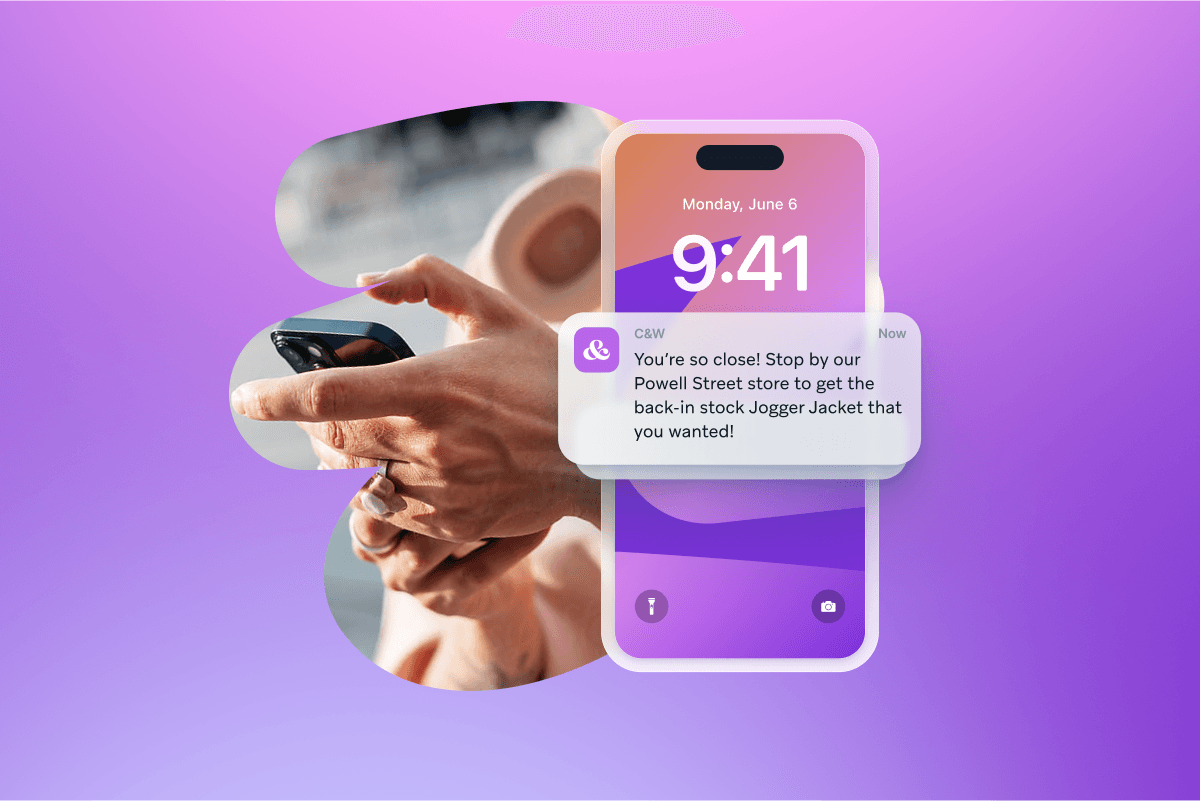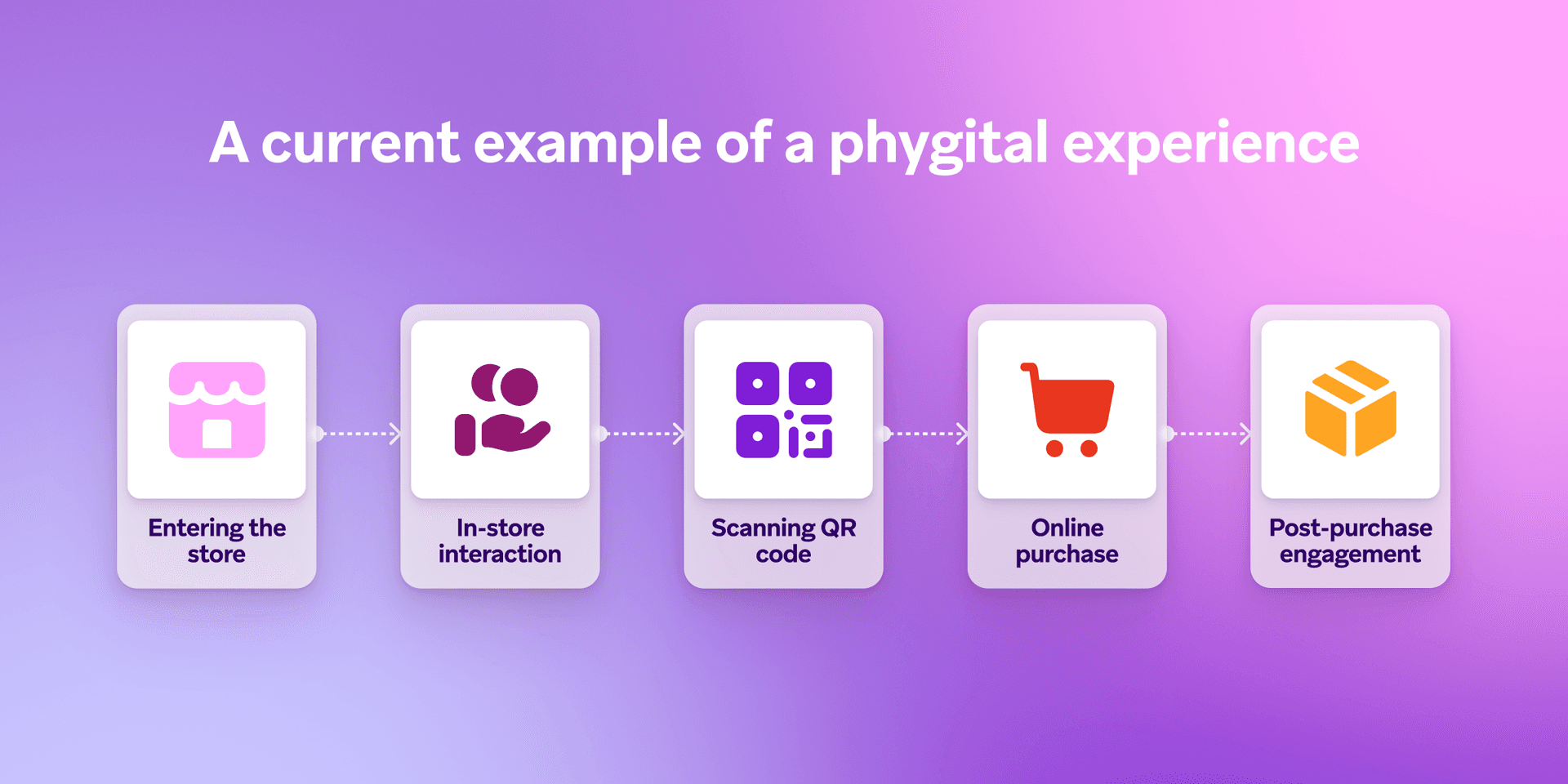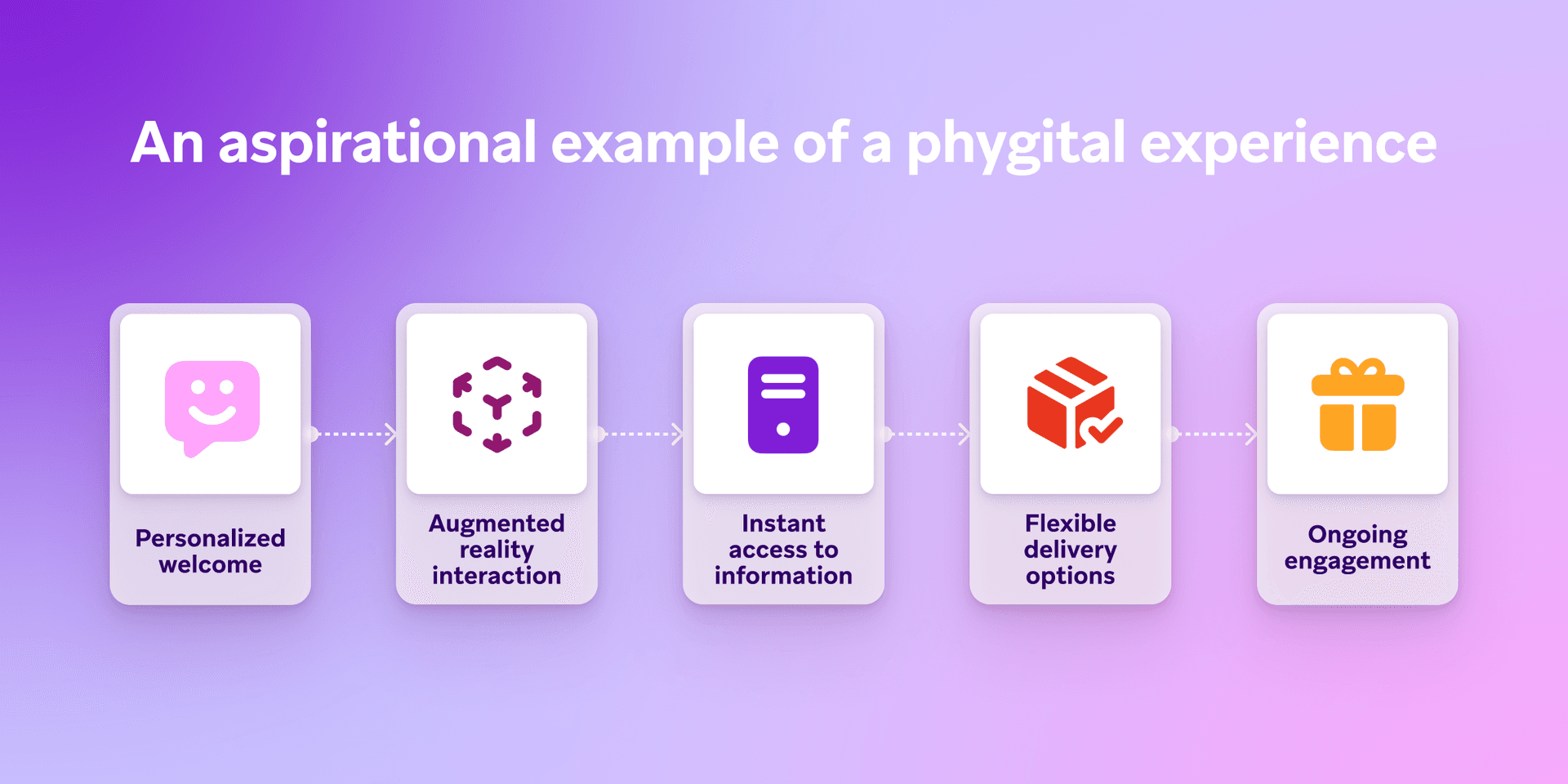How connecting physical and digital retail experiences are reshaping consumer behavior
Published on August 18, 2025/Last edited on August 18, 2025/5 min read


Team Braze
The emergence of connected physical and digital experiences is not just a trend; it’s a paradigm shift that redefines how consumers engage with brands. As digital and physical realms converge, marketers face an imperative to adapt their strategies to meet the evolving expectations of consumers who now demand seamless, personalized, and consistent interactions across touchpoints.
This transformation is not merely about enhancing customer journeys; it’s about fundamentally rethinking how brands connect with their audiences in a world where the lines between online and offline experiences are increasingly blurred. For those tasked with steering the ship in this evolving landscape, understanding and leveraging these experiences is paramount.
Phygital retail: The new frontier
Phygital retail represents the seamless integration of physical and digital shopping experiences. Imagine a consumer entering a store, scanning a QR code, and instantly accessing a wealth of product information, reviews, and personalized offers—all while enjoying a curated in-store ambiance. This is not just an enhancement; it’s a transformation that elevates the shopping experience and fosters deeper connections between brands and consumers.

However, phygital retail is not just about blending the physical and digital worlds; it’s about creating an aspirational journey that redefines how consumers interact with brands. Picture a world where shoppers can try on clothes in-store in a physical digital location and brands can track everything they liked and disliked to customize a digital experience, post-try on.
After all, the journey doesn’t end at the checkout. With a seamless online purchase option, they can choose to have their items delivered to their home or opt for in-store pickup, all while receiving real-time updates on their order status through a dedicated app. After the purchase, the brand continues to engage with them through personalized follow-up messages, exclusive loyalty rewards, and invitations to future events, creating a lasting relationship that transcends the transaction.

The psychology of consumer behavior: Insights for leaders
Understanding consumer behavior is akin to navigating a complex labyrinth—challenging yet rewarding. However, we must delve into the psychology behind consumer choices if we are to craft strategies that resonate.
Small changes, significant impacts
Consider this: a nuanced shift in messaging can lead to profound changes in consumer perception. Instead of the clichéd “limited time offer,” consider “exclusive access for our loyal customers.” This reframing not only enhances appeal but also taps into the psychology of exclusivity. In an era where consumers are inundated with choices, making them feel special can be the differentiator that drives loyalty.
The power of personalization
Imagine walking into your favorite coffee shop, and the barista greets you by name, already preparing your usual order. You feel valued, recognized, and—let’s face it—like a VIP. This is the kind of experience consumers crave, and phygital retail can deliver it on a grand scale.
Personalization goes beyond just knowing a customer’s name; it involves understanding their preferences, behaviors, and needs. For instance, leveraging data analytics allows brands to anticipate what a consumer might want before they even ask. This proactive approach not only enhances the shopping experience but also builds trust and loyalty. However, the challenge lies in scaling this level of personalization across diverse consumer touchpoints.
Brands must invest in technology that enables seamless data integration and real-time insights, ensuring that every interaction—whether online or in-store—feels personalized. This might include tailored recommendations based on past purchases, personalized marketing messages, or even customized in-store experiences that align with individual preferences.
The role of emotional connection
Brands that evoke positive emotions—whether through storytelling, community engagement, or exceptional customer service—are more likely to foster loyalty. Consumers are drawn to brands that resonate with their values and aspirations. In the phygital space, this means creating experiences that not only meet functional needs but also align with consumers' emotional desires.
For example, a retail brand that supports sustainability can appeal to environmentally conscious consumers by highlighting eco-friendly practices and products. By aligning brand values with consumer beliefs, companies can cultivate a loyal customer base that feels a genuine connection to the brand.
Adapting retail strategies for the future
As we look to the future, retailers must adapt their strategies to thrive in this phygital landscape. Here’s how it’s done:
Prioritize customer experience
Focus on creating memorable experiences that resonate with consumers. This could mean offering personalized recommendations, hosting exclusive events, or providing exceptional customer service. The goal is to create a holistic experience that keeps consumers coming back.
Embrace technology
Invest in technology that enhances the shopping experience. Whether it’s a customer engagement platform, AR, AI, or mobile apps, leveraging the right tools can set your brand apart in a competitive market.
Foster a sense of community
Engage with your customers and create a sense of belonging. This could be through social media, loyalty programs, or in-store events that bring people together. Building a community around your brand can lead to increased loyalty and advocacy.
Conclusion: The future is phygital
As we navigate the future of retail, one thing is clear: phygital experiences are here to stay. By understanding consumer behavior, embracing technology, and prioritizing customer experience, brands can thrive in this new landscape.
So, as you contemplate your next strategy, ask yourself: How can you create phygital experiences that resonate with your audience? What small changes can you implement in your messaging that could lead to significant impacts? The future of retail is in your hands—let’s make it a phygital one!
Related Tags
Be Absolutely Engaging.™
Sign up for regular updates from Braze.


